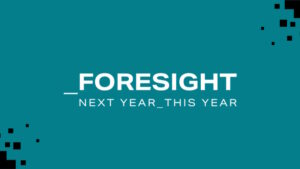As we enter H2, NDA asked a number of industry figures about what have been the key developments so far in 2021 and what’s to come. This time it’s Georgie Rumble, Product Strategy Director of Talon
As we move into H2 the three key issues facing the AdTech industry are: Compliance, Transparency, and Politics. These elements are all intrinsically linked and should not at any point be seen as siloed verticals.
Firstly, in terms of compliance, consumers are becoming more in tune to what data they have, how much this data reveals about them, and who they want to share it with, which could result in a data eclipse for Adtech companies. Compliance within smaller Adtech avenues also seems to be suffering from a ‘hot potato effect’ where there is no clearly defined ‘owner’. Therefore, whose responsibility is it to ensure regulations are being met and tackled head on? Does this sit with the advertiser? The agency? The data provider? Arguably, all three are responsible, but the uncertainty creates panic and consequently leads to mismanagement.
Secondly, transparency is key – not only from a data collection standpoint, but also to ensure advertisers are activating adtech opportunities, and are getting what they pay for. As the agency model continues to get squeezed, the industry will be put under the microscope assessing fees and their relevance. Going forwards, it will be vital suppliers, adtech and media partners are transparent, deliver on promises, and back this up with evidence to ensure advertisers are seeing value.
Lastly – and probably the biggest hole in the adtech bucket – is politics. Politics in the Adtech sector is an issue which is multifaceted. The big tech companies continue to employ power plays which lead to an increased competitive advantage due to their data, which in most cases underpins the whole digital marketing ecosystem. These companies have and will continue to use legal regulation changes in data privacy to their advantage, creating even more dominance from the top.
Political issues do not stop there however. There is more desire than ever to interrogate big tech companies and a spotlight has been put on fake-news and misinformation, not just data collection. Some industry commentators argue that the more regulations in place across the industry the less innovation possible.
So these are the biggest issues, but what are the potential solutions?
As an industry we must understand and act on the principle that protection of consumers comes first, and the termination of the third-party cookie is a step in the right direction towards achieving this. Enabling a compliant and transparent future is key to gaining consumer trust and ensuring any panic is met with immediate reassurance at every stage.
I don’t agree with the sentiment that more regulations will lead to a lack of innovation – just the opposite. Innovation, imagination and evolution are often at their strongest when faced with adversity. These challenges should instead be seen as opportunities to become less intrusive, more innovative, and more collaborative across the industry.
Talon is a client of Bluestripe Communications, part of The Bluestripe Group who are the publishers of New Digital Age









